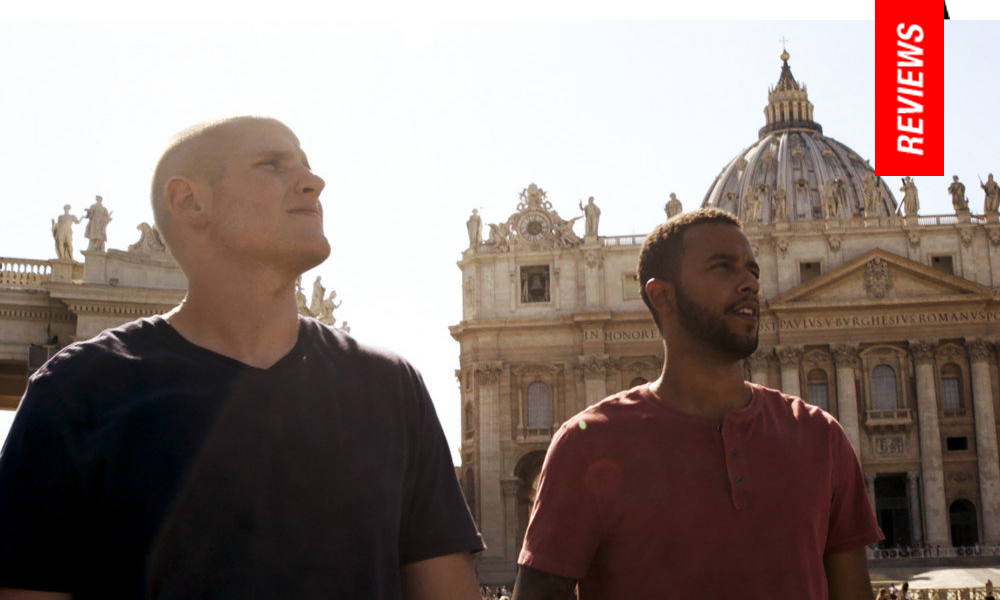Terror Train: Eastwood Monotonously Mulls an Act of Heroism in Failed Experiment
The failure of The 15:17 to Paris as a film doesn’t lie with its three subjects, each making their debut and assigned the lofty task of playing former versions of themselves. Eastwood’s cut favors Spencer Stone, who, by comparison, seems to have the easiest time shedding the self-awareness drenching every single sequence of banality standing in for the lack of narrative. When paired with Alek Skarlatos and Anthony Sadler, casual moments tend to feel incredibly labored, such a beer-swilling sequence in a hotel room where key information is divulged about Stone’s trajectory, which lays the groundwork for his decision and reaction to tackle the train terrorist.
However, the story of these three men prior to 2016 plays like awkward propaganda, as if Eastwood wanted to present us with a muddled pamphlet of the kind of Christian, good ole’ American Midwestern values which were the only and obvious contributors to these men’s heroism. The teaching staff in the Christian elementary school (Thomas Lennon, P.J. Byrne) are presented as irrationally strict, punishing the boys continuously for lingering innocently in the hallway past the bell—as if they’re mere precocious saints who had no real cause to be singled out other than bad luck. Likewise, Judy Greer and Jenna Fischer play the single mothers of the two white men, each getting their own grand outburst about God—the latter in an aside about how the deity spoke to her about her son’s future, a sentiment which will undoubtedly be deemed acceptable by an alarming portion of the film’s audience, but to others should be recognized for the kind of insanity (and poor narrative set-up) it really is.
The meandering exposition jumps from 2005 to young adulthood for all three as they decide what they want to do with their lives. Eventually, these three threads (Skarlatos and Sadler don’t get as much fleshing out) convene into a fateful European trip which finds a series of random circumstances leading them to Amsterdam, and the fateful train out of it.
While Eastwood saves all his energy for the last titular train ride, which is indeed upsetting and anxiety inducing, it’s hardly enough to justify a reenactment, at least in this format. Had notable stars been cast in the roles of the three men, doubtless exaggerations would have ensued (recalling the promises of Chris Tucker to the servicemen in Ang Lee’s Billy Lynn’s Long Halftime Walk, 2016), but even this heightened idolatry wouldn’t have been enough to make this a worthwhile venture. As compromised as some of Eastwood’s most recent celebrated titles have been, from the controversial American Sniper to the conventional Sully (both of which also feature diluted roles for noted actresses), The 15:17 to Paris is one of the biggest gambles and greatest missteps from a patchy five-decade and running directorial filmography which, to his credit, at least always seems to be engaged with contemporary issues and portraits.
★/☆☆☆☆☆
